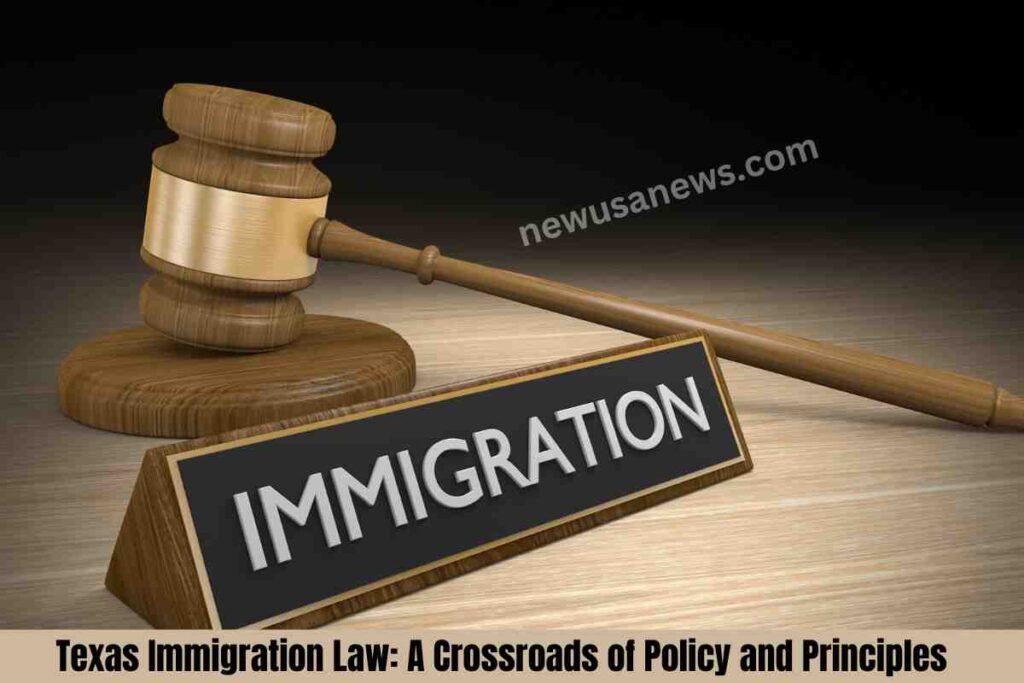The Supreme Court’s Decision and Immediate Aftermath
Texas Immigration Law: A Crossroads of Policy and Principles;-The Supreme Court’s initial green light for Texas to enforce its controversial immigration law marked a significant moment in the ongoing debate over state versus federal jurisdiction in immigration matters. This decision was interpreted by many as an endorsement of more aggressive state-led initiatives to control immigration. However, the rapid legal intervention that followed, effectively pausing the law’s implementation, highlighted the volatile legal and political environment surrounding immigration policy in the United States. The swift change from enforcement to injunction underscores the complex interplay between different government and judiciary levels in shaping the nation’s approach to immigration.
Impact on Migrant Communities and State-Federal Dynamics
The temporary blocking of Texas’ immigration law has profound implications for migrant communities, illustrating the precarious nature of their existence within the legal and social fabric of the state. The fear and uncertainty accompanying such abrupt legal shifts can destabilize families and individuals already navigating immigration challenges. Furthermore, this incident highlights the ongoing tension between state initiatives to regulate immigration and the federal government’s authority over immigration law. The clash between Texas’ efforts to assert its right to protect its borders and the federal courts’ interventions raises critical questions about the balance of power and the scope of states’ rights in managing immigration issues.
The Broader National Conversation on Immigration
The controversy surrounding the Texas immigration law is a microcosm of the more significant national debate over immigration reform. On one side of the argument, some advocate for stringent immigration controls and believe that states should have more autonomy in enforcing immigration laws, especially in areas heavily impacted by illegal immigration. On the other side, critics argue that such state-led measures are at odds with America’s history as a melting pot of cultures and that immigration policy should reflect a balance between security and compassion. This debate concerns policy, values, and the identity of the United States as a nation.
Legal and Human Implications Moving Forward
As the legal battle over Texas’ immigration law continues, its outcomes will likely influence future legislation within and across the country. This case could set legal precedents regarding how states can independently enact and enforce immigration laws, potentially reshaping the landscape of immigration policy in America. Beyond the legal ramifications, this situation highlights the human element of immigration debates—a reminder that behind every policy discussion are real people whose lives and families are directly affected. The way forward demands a nuanced understanding of both the legal frameworks governing immigration and the moral and ethical considerations that define a society’s approach to welcoming newcomers.
Legal Precedents and Future Implications
The legal tug-of-war over Texas’ immigration law is not just a standalone event but a pivotal moment that could set significant legal precedents for the future of immigration enforcement in the United States. The judiciary’s role in this process, balancing state initiatives against federal statutes and constitutional protections, underscores the complexity of immigration as a legal issue. Should the federal courts uphold the temporary block on Texas’ law, it could signal limitations on how individual states can pursue aggressive immigration enforcement policies independent of federal oversight. Conversely, if Texas’ measures are eventually allowed to proceed, it could encourage other states to enact similar laws, leading to a fragmented national landscape of immigration enforcement that varies significantly from one state to another.
A Nation Divided: The Social Impact of Immigration Debates
Beyond the courts, the debate over Texas’ immigration law and its implications reflect deeper divisions within American society regarding the issue of immigration. These divisions are not merely about policy specifics but broader questions of identity, values, and the nature of American culture. Immigration has always been a defining aspect of the American experience, but the current polarized climate adds a layer of complexity to finding common ground. The social impact of this polarization is evident in communities across the country, where immigrants often live in a state of heightened anxiety and uncertainty about their futures. The discourse surrounding immigration laws like Texas’ can exacerbate these tensions, highlighting the need for a more empathetic and inclusive approach to policy-making that acknowledges the human dimension of immigration.
Conclusion: Texas Immigration Law: A Crossroads of Policy and Principles
The ongoing saga of Texas’ immigration law is a stark reminder of the urgent need for comprehensive immigration. As the nation grapples with the legal, social, and ethical implications of this and similar initiatives. It is clear that more than piecemeal approaches and state-level actions are needed to address modern migration’s complexities.
Ultimately, the debate over immigration is not just about laws and policies. But about defining the character and future of the nation. It tests America’s ability to reconcile its security needs with its humanitarian obligations and historical identity. As the country moves forward, it will be essential to keep these broader principles in mind. For solutions rooted in justice, compassion, and a shared vision of a diverse and thriving America.

